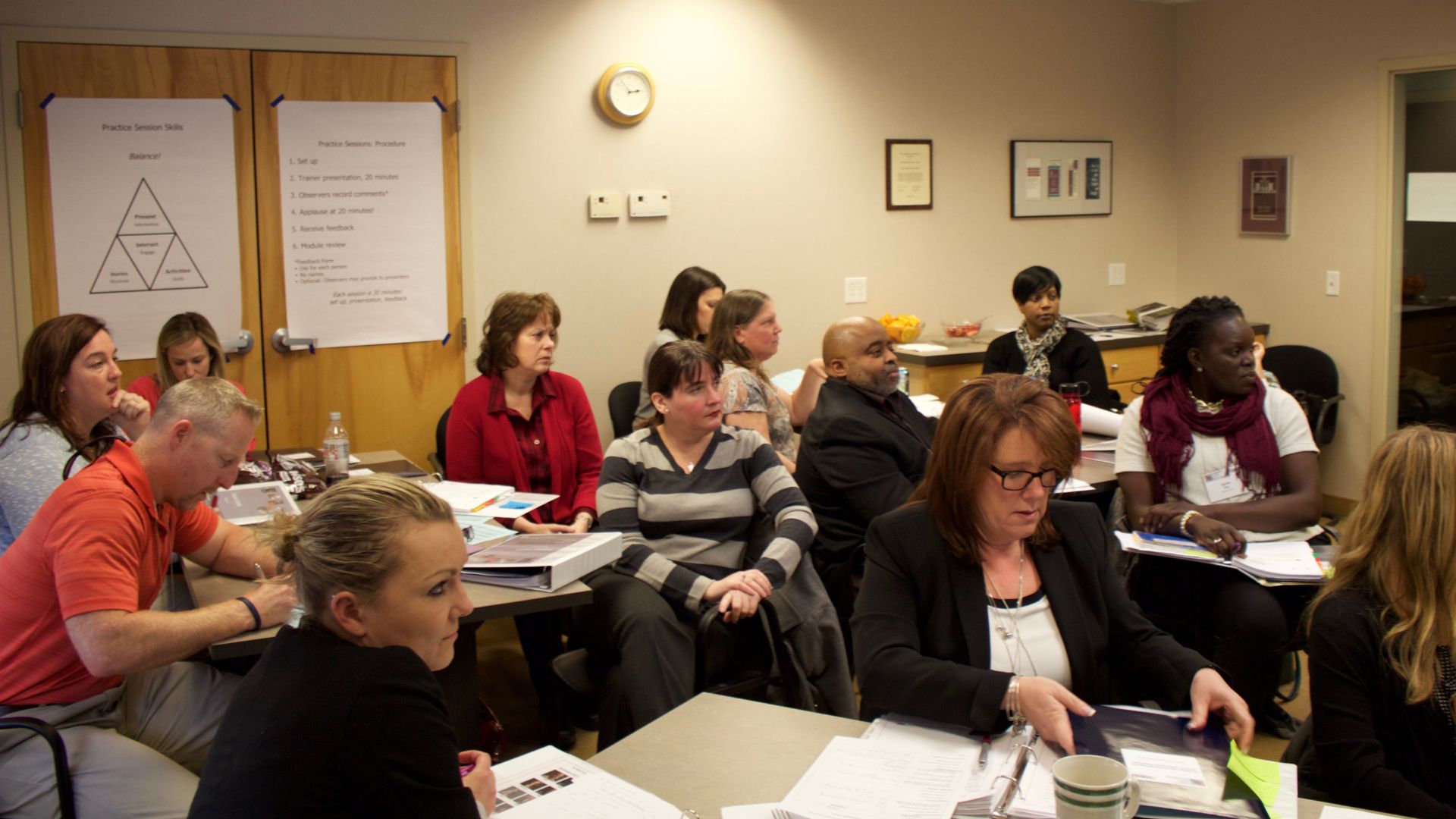There is consensus that high percentages of people with criminal legal system involvement have experienced trauma throughout their lives. Close to 70 percent of mental health court participants report a history of child physical abuse, and the lifetime prevalence of trauma among people with serious mental illness who are involved with the criminal legal system has been found to be nearly universal (Callahan et al., 2012; Policy Research Associates, 2011).
The reverberating effects of traumatic experiences can challenge a person’s capacity for recovery and pose significant barriers to accessing services, often resulting in an increased risk of encountering the criminal legal system. Criminal legal system professionals are often not aware of trauma’s effects and may inadvertently escalate an encounter, leading to worse outcomes such as additional charges or jail time for the person involved.
Our Solution
How Being Trauma Informed Improves Criminal Justice System Responses is a training program for criminal legal system professionals to increase their understanding of trauma, create an awareness of the impact of trauma on behavior, and develop trauma-informed responses. Trauma-informed responses can help to avoid retraumatizing individuals and increase safety, decrease recidivism, and promote and support recovery of people with criminal legal system involvement. Graduates of the training program report a greater understanding of the impacts of trauma and changes to their work and approach to individuals in contact with the criminal legal system (Krider et al., 2024).
Our Model
Our 4-hour training is designed to be informative and engaging. We guide training participants through six modules, in which they learn the following:
- Why learn about trauma: Setting the stage on why it is important to learn about trauma.
- What is trauma: Understanding the complexities of the term “trauma,” including how people experience and are affected by traumatic events and exploring the potential impact and the impact of trauma “on the job” among criminal legal system professionals.
- Trauma’s effects: Learning how trauma—even trauma from decades ago—can present among people in contact with the criminal legal system.
- Individual differences: Understanding the individualized nature of traumatic experiences and the role of risk and resilience factors in a person’s life. Historical, community, and contextual factors are also explored.
- Trauma-informed responses: Learning how to use the understanding of trauma and its impact on behavior to develop trauma-informed approaches and response strategies using a trauma-informed lens.
- Trauma-informed systems: Exploring how criminal legal system policies and procedures may retraumatize people and steps that professionals can take to help change it.
Participants
This highly interactive training is tailored to the following participants:
- Criminal legal system professionals (e.g., corrections, court personnel, police)
- Behavioral health providers who work with people with criminal legal system involvement
Impact in the Field
Follow-Up Assistance
Follow-up technical help is not always needed after your training event. But some jurisdictions find additional assistance with post-training strategic planning. If your community wants more support, the Systems Mapping and Training Center is here. The Center can host follow-up strategic planning meetings, including facilitated strategic planning sessions, give guidance and resources, or connect you with topic experts. These follow-up opportunities are offered on a fee-for-service basis if the need comes up.
References
Callahan, L., Steadman, H. J., Vesselinov, R., & Robbins, P. C. (2012). Comparing outcomes for women and men in mental health courts. (Unpublished manuscript). Delmar, NY: Policy Research Associates, Inc.
Policy Research Associates. (2011). Evaluation of the CMHS Targeted Capacity Expansion for Jail Diversion Programs: Final report. Delmar, NY: Author.



